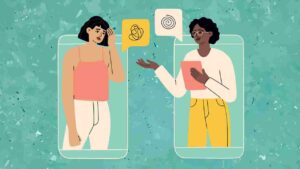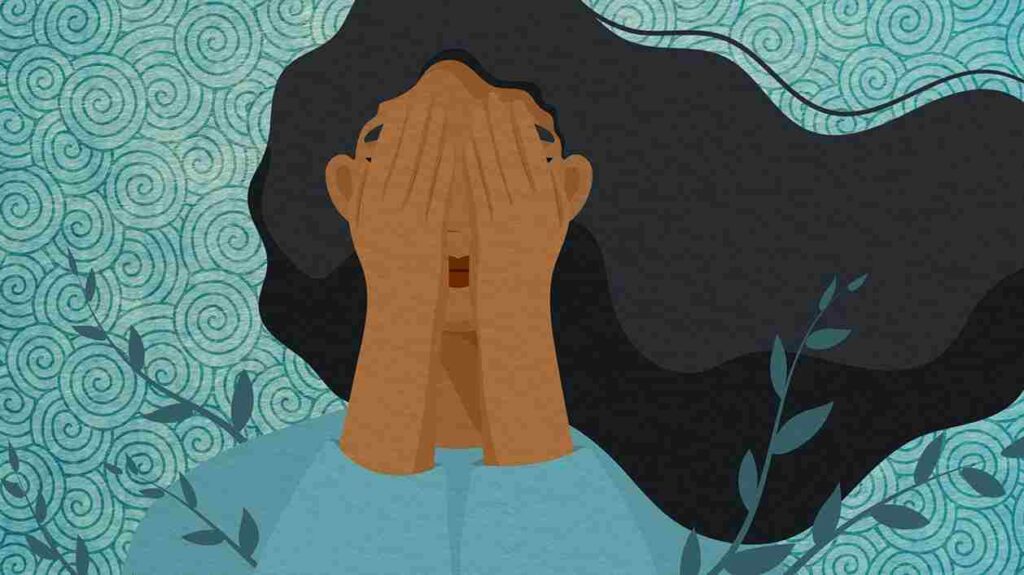Depression is a serious mental illness that affects millions of people each year. Long-term depression is caused by a variety of factors, including genetics, lifestyle choices, and chemical imbalances in the brain. Depression can lead to a wide variety of negative consequences for the individual affected, including decreased productivity, social isolation, and even suicide. In this blog post, we will discuss the reality of long-term depression and what you need to know if you or someone you love is suffering from it.
Contents
What Is Long-Term Depression?
 Long-term depression means feeling depressed for a long period, usually more than six months. It can be mild, moderate, or severe. People with long-term depression may lose interest in activities they used to enjoy and have trouble doing everyday tasks. They may also have problems with sleep, appetite, energy levels, and concentration. Many people with long-term depression also have anxiety and may experience panic attacks. It is estimated that more than 16 million adults in the United States suffer from depression, and it is one of the most common mental health disorders. Depression can lead to a host of physical and emotional problems, and can even be fatal.
Long-term depression means feeling depressed for a long period, usually more than six months. It can be mild, moderate, or severe. People with long-term depression may lose interest in activities they used to enjoy and have trouble doing everyday tasks. They may also have problems with sleep, appetite, energy levels, and concentration. Many people with long-term depression also have anxiety and may experience panic attacks. It is estimated that more than 16 million adults in the United States suffer from depression, and it is one of the most common mental health disorders. Depression can lead to a host of physical and emotional problems, and can even be fatal.
What Causes Long-Term Depression?
There is no single cause of long-term depression. Some people may be more likely to develop long-term depression if they have a family history of the condition.
Genetic: People with a family history of depression are more likely to experience it themselves. For example, if a parent has depression, their child has a 50% chance of developing it.
Biological: Depression may be caused by changes in brain chemistry or hormones. For example, people with low levels of the neurotransmitter serotonin are more likely to experience depression.
Psychological: Negative thinking patterns and low self-esteem can contribute to depressive episodes. For instance, people who consistently see themselves as failures are more likely to become depressed.
Environmental: Stressful life events, such as the death of a loved one or losing a job, can trigger an episode of depression. poverty and social isolation are also risk factors.
Depression is more than feeling sad or down; it’s a serious mental illness that can have profound effects on your thoughts, emotions, behavior, and physical health. In some cases, depression may lead to suicidal thoughts/behaviors. If any of these sound familiar to you please seek help from a professional soon.
What Are the Symptoms of Long-Term Depression?
The symptoms of long-term depression are very similar to the symptoms of major depression, but they tend to be more chronic and last for a longer period. Symptoms may include:
- Persistent feelings of sadness, emptiness, or hopelessness
- Angry outbursts, irritability, or frustration over small matters
- Loss of interest or pleasure in most or all normal activities, such as sex, hobbies, or sports
- Sleep disturbances, including insomnia or sleeping too much
- Tiredness and decreased energy
- Changes in appetite — usually a decrease in appetite and weight loss, but sometimes an increase in cravings for food and weight gain
- Anxiety, agitation, or restlessness
- Slowed thinking, speaking, or body movements
- Feelings of worthlessness or guilt
- Trouble thinking, concentrating, making decisions
- Recurrent thoughts of death or suicide
If you are experiencing any of these symptoms regularly for two weeks or more, you may be suffering from long-term depression. It is important to seek professional help if you think you may be depressed. Depression is a serious condition that can be effectively treated.
How Can Long-Term Depression affect Life?

Depression is a serious mental illness that can have profound effects on every aspect of a person’s life. It can cause physical, emotional, and cognitive problems that make it difficult to function at work, at home, and in social situations. Left untreated, depression can lead to suicide. There are various phases of life where an individual is affected. These are some phases:
Work-life
Depression can make it difficult to concentrate, remember things, and make decisions. It can also cause fatigue and loss of motivation, making it hard to get up for work in the morning or perform at your best during the day. Depression can lead to absenteeism and lost productivity, costing businesses billions of dollars each year.
Relationship problems
If you’re in a relationship, depression can make it hard to maintain healthy communication and intimacy. You may find yourself withdrawing from your partner or feeling burdened by their demands. Depression can also lead to problems with drinking or drug abuse, which can further damage your relationship.
Social life
Depression can make it hard to enjoy social activities and can cause withdrawal from friends and family. It can also lead to social anxiety and isolation. In severe cases, depression can result in suicide.
Personal life
Depression can take a toll on your physical health, causing fatigue, insomnia, and aches and pains. It can also lead to weight gain or loss. Depression can also cause problems with memory and concentration. In severe cases, depression can even lead to thoughts of self harm.
Thus, it is important to be aware of the signs and symptoms of depression, so that you can get the help you need.
How Can You Manage Long-term Depression?
 To manage long-term depression, you need to first understand what causes it. For instance, It may be caused by a chemical imbalance in the brain, certain medical conditions, or life events.
To manage long-term depression, you need to first understand what causes it. For instance, It may be caused by a chemical imbalance in the brain, certain medical conditions, or life events.
Once you know what’s causing your depression, you can work with your doctor to develop a treatment plan.
There are many different types of treatment for long-term depression:
Seek Professional Treatment
The most important step you can take to manage long-term depression is to seek professional help. A mental health professional can provide you with the support and resources you need to get through this difficult time.
Managing long-term depression can be difficult, but it’s important to seek professional help. With the right treatment and support, you can manage your depression and live a happy and fulfilling life.
Medication
Antidepressants can help balance the chemicals in your brain that affect mood. Antidepressants such as selective serotonin reuptake inhibitors (SSRIs) are often used to treat long-term depression.
Psychotherapy
Psychotherapy, or “talk therapy,” can help you understand and work through the problems that may be causing your depression. Cognitive behavioral therapy (CBT) is a type of psychotherapy that is especially helpful in treating depression.
Electroconvulsive therapy (ECT)
ECT is a treatment that uses electrical stimulation to treat severe depression that has not responded to other treatments.
Develop a Support System
In addition to professional treatment, it’s also important to develop a support system for family and friends. These people can provide you with emotional support and practical assistance.
Lifestyle changes
Making certain lifestyle changes can help reduce the symptoms of long-term depression.
- Get Regular Exercise: Exercise is a great way to boost your mood and energy levels. It’s also a good way to reduce stress. Try to get at least 30 minutes of exercise every day.
- Eat a Healthy Diet: Eating a healthy diet is important for both your physical and mental health. Make sure to eat plenty of fruits, vegetables, whole grains, and lean protein. Avoid sugary and processed foods.
- Get Plenty of Sleep: Getting enough sleep is crucial for managing long-term depression. Most adults need at least seven hours of sleep per night.
- Practice relaxation techniques: Relaxation techniques such as yoga, meditation, and deep breathing can help reduce stress and improve your mood.
- Stay Positive: It’s important to stay positive and hopeful, even when things seem difficult. Try to focus on the good things in your life, and make an effort to do things that make you happy
With the right support and treatment plan, you can manage your depression and live a happy and fulfilling life.
Conclusion
It may be concluded that long-term depression is a serious mental illness that should not be taken lightly. If you or someone you know is struggling with depression, it is important to seek professional help. It can be effectively treated with medication, therapy, and/or other forms of treatment. With proper treatment, people with depression can lead happy and fulfilling lives. Dysthymia (dis-THIE-me-uh) is a persistent long-term (chronic) form of depression. You may grow tired and apathetic, have low productivity, lack motivation, and have low self-esteem and an overall sense of inadequacy.
For further information and suggestions, please contact Therapy Mantra. We have a team of expert therapists that can help you overcome this problem. Get in touch with us right away to learn more about our services. You may also make an online therapy session or download our free Android or iOS app.


